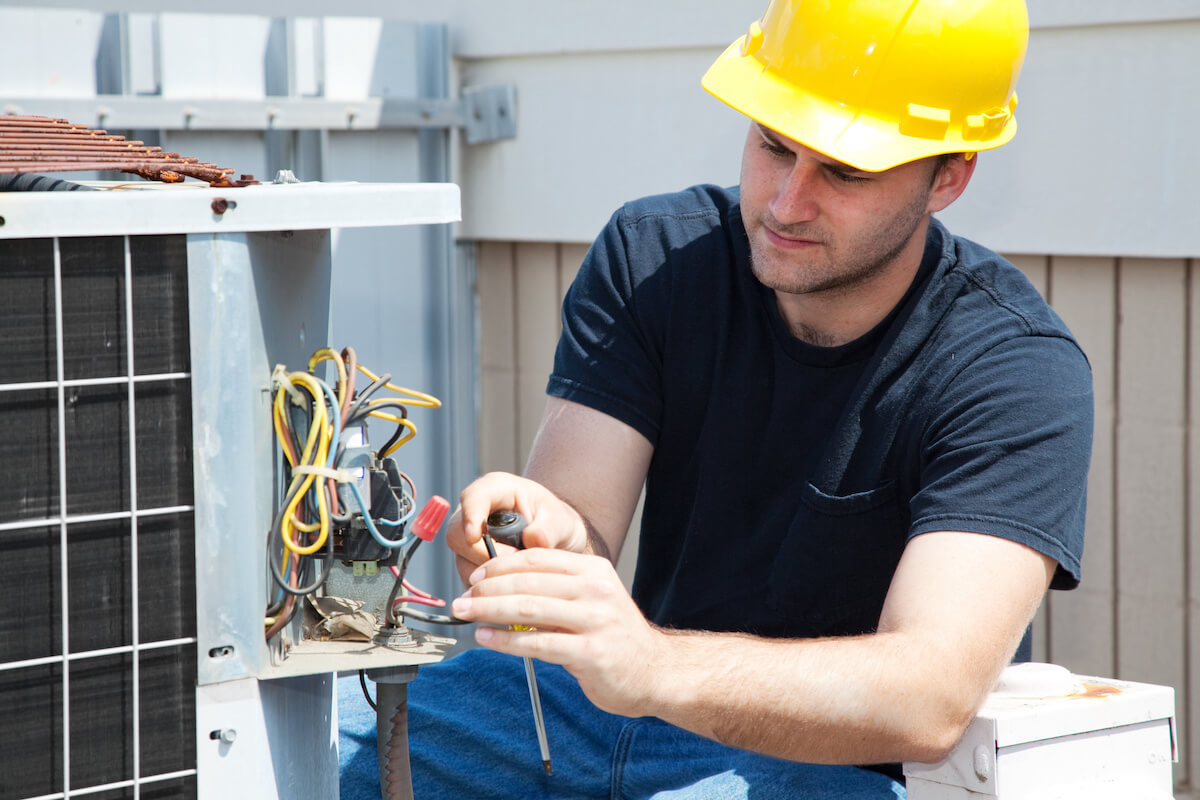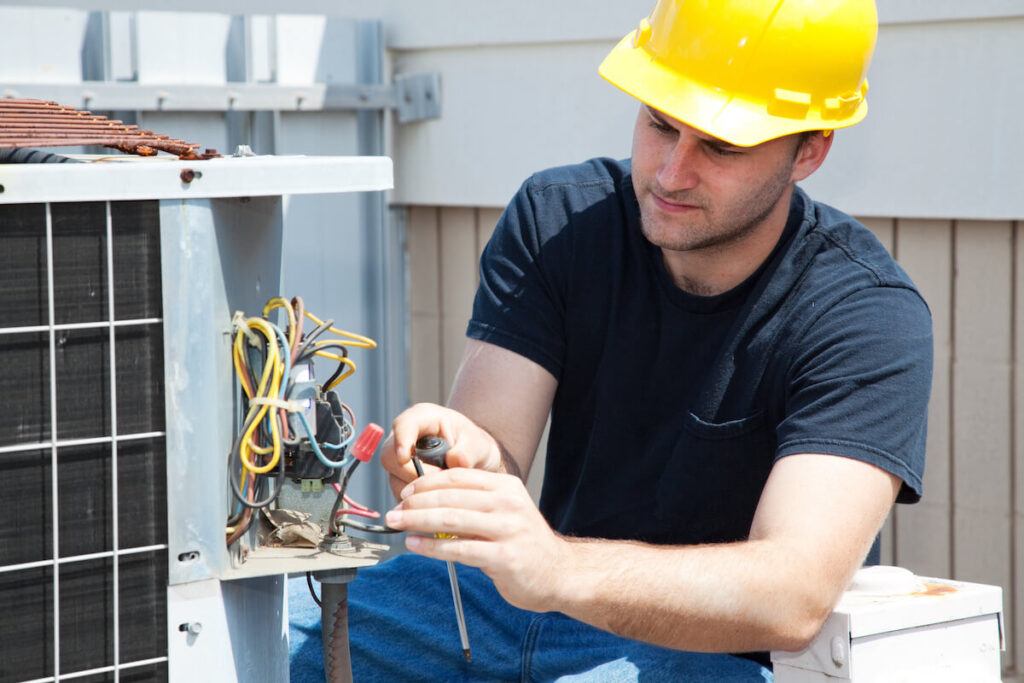Types of Insurance for HVAC Contractors
HVAC contractors face unique risks that require specialized insurance coverage. Understanding the different types of insurance available can help contractors protect their businesses and their clients.
General Liability Insurance
General liability insurance protects contractors from claims of bodily injury or property damage caused by their work. This coverage is essential for any HVAC contractor as it can cover costs such as medical expenses, legal fees, and settlements.
For example, if an HVAC technician accidentally drops a tool that injures a client, general liability insurance would cover the medical expenses and any legal fees associated with the claim.
Property Insurance
Property insurance protects the contractor’s business property, including tools, equipment, and vehicles. This coverage is important to ensure that the contractor can continue to operate their business in the event of a loss.
For example, if a fire damages the contractor’s workshop and equipment, property insurance would cover the cost of replacing the damaged items.
Workers’ Compensation Insurance
Workers’ compensation insurance provides benefits to employees who are injured or become ill due to their work. This coverage is required by law in most states and provides benefits such as medical expenses, lost wages, and disability payments.
For example, if an HVAC technician suffers a back injury while lifting a heavy piece of equipment, workers’ compensation insurance would cover their medical expenses and lost wages during their recovery.
Importance of Insurance for HVAC Contractors
Adequate insurance coverage is crucial for HVAC contractors to mitigate the financial and legal risks associated with their operations. Without proper insurance, contractors could face substantial losses due to accidents, property damage, or lawsuits.
Insurance provides a safety net for contractors, protecting them from financial ruin in the event of unforeseen circumstances. It ensures that contractors can continue operating and fulfilling their contractual obligations without facing catastrophic financial setbacks.
Legal Liabilities
- HVAC contractors have a legal responsibility to ensure the safety of their employees, clients, and the public. Insurance coverage protects them from liability claims arising from accidents or injuries that occur during the course of their work.
- Contractors can also be held liable for property damage caused by their negligence or faulty workmanship. Insurance coverage provides financial protection against claims for property damage or loss.
Financial Losses
- HVAC contractors often invest significant capital in equipment and tools. Insurance coverage protects these assets from damage or loss due to theft, fire, or natural disasters.
- In the event of an accident or lawsuit, insurance coverage can help contractors cover legal expenses, medical bills, and other associated costs.
Case Study
A recent study by the National Association of Home Builders (NAHB) found that HVAC contractors who carried adequate insurance coverage experienced significantly fewer financial losses due to accidents or lawsuits compared to those who did not have proper coverage.
Choosing the Right Insurance Policy

Securing the appropriate insurance policy is crucial for HVAC contractors to safeguard their business and mitigate potential risks. To make an informed decision, it’s essential to assess your specific needs and compare different insurance providers based on coverage limits, deductibles, and premiums.
Consider the following factors when evaluating insurance policies:
Coverage Limits
- Determine the maximum amount of coverage provided for each type of risk, such as liability, property damage, and business interruption.
- Ensure that the coverage limits align with the potential risks and exposures faced by your HVAC business.
Deductibles
- A deductible is the amount you pay out of pocket before the insurance policy begins to cover costs.
- Higher deductibles typically result in lower premiums, but you must be prepared to cover more expenses in the event of a claim.
Premiums
- The premium is the annual cost of your insurance policy.
- Premiums are influenced by factors such as the coverage limits, deductibles, and your business’s risk profile.
Table of Insurance Policies for HVAC Contractors
| Policy Type | Coverage | Deductibles | Premiums |
|---|---|---|---|
| General Liability Insurance | Covers bodily injury, property damage, and legal expenses resulting from accidents or negligence | Varies | Varies |
| Commercial Property Insurance | Protects your business property, equipment, and inventory from damage or loss | Varies | Varies |
| Business Interruption Insurance | Provides coverage for lost income and expenses incurred during business interruptions caused by covered events | Varies | Varies |
| Workers’ Compensation Insurance | Covers medical expenses and lost wages for employees injured on the job | Typically mandated by law | Varies |
| Commercial Auto Insurance | Protects your business vehicles from damage or loss | Varies | Varies |
Maintaining Insurance Coverage
Maintaining continuous insurance coverage is crucial for HVAC contractors to protect their business and finances. A lapse in coverage can have severe consequences, including financial losses, legal liabilities, and reputational damage.
Contractors should take the following steps to ensure their insurance coverage remains valid:
– Pay premiums on time: Late payments can result in coverage cancellation. Set up automatic payments or reminders to avoid missing deadlines.
– Report changes to your business: Notify your insurer of any changes in your business operations, such as new employees, expanded services, or changes in equipment. Failure to do so may void your coverage.
– Review your policy regularly: As your business evolves, your insurance needs may change. Review your policy annually to ensure it still meets your coverage requirements.
Tips for Keeping Insurance Costs Down
While it’s important to maintain adequate coverage, contractors can also take steps to keep their insurance costs down without sacrificing protection:
– Compare quotes from multiple insurers: Shop around for the best rates and coverage options.
– Increase your deductible: Raising your deductible can lower your premiums. However, ensure you can afford the higher out-of-pocket costs in case of a claim.
– Implement risk management measures: By taking steps to reduce risks, such as providing safety training to employees and maintaining equipment, you can lower your claims history and potentially qualify for discounts.
– Bundle policies: Consider combining your insurance policies, such as general liability and property insurance, with the same insurer to save on premiums.
Insurance for Specialized HVAC Services
HVAC contractors who offer specialized services may require additional or unique insurance coverage to mitigate risks associated with those services. Specialized services include refrigeration, duct cleaning, and indoor air quality testing.
Refrigeration services involve working with refrigerants, which can be hazardous if not handled properly. Insurance policies for refrigeration contractors should cover potential risks such as refrigerant leaks, explosions, and injuries to technicians or third parties.
Duct Cleaning Services
Duct cleaning services involve removing dirt, dust, and other contaminants from HVAC systems. This work can expose technicians to harmful substances, so insurance policies should cover potential risks such as respiratory illnesses, allergic reactions, and injuries from falls or electrocution.
Indoor Air Quality Testing Services
Indoor air quality testing services involve evaluating the quality of air inside buildings. This work can expose technicians to various pollutants, so insurance policies should cover potential risks such as exposure to hazardous chemicals, biological contaminants, and respiratory illnesses.
Insurance policies tailored to meet the needs of specialized HVAC contractors typically include comprehensive coverage for general liability, property damage, workers’ compensation, and professional liability. These policies can be customized to include additional coverage for specific risks associated with specialized services.






